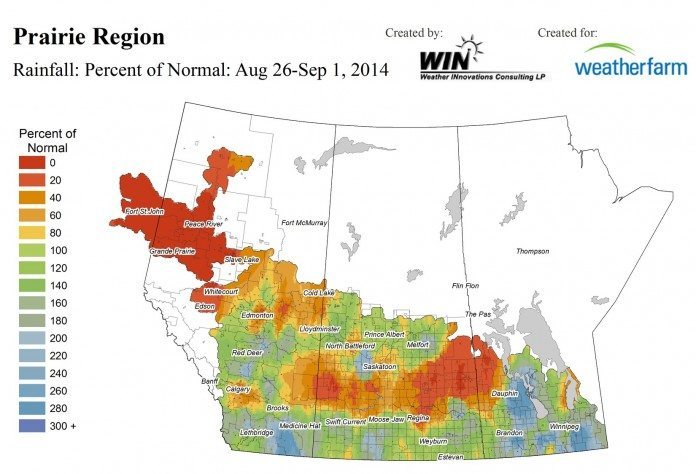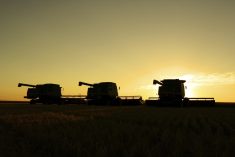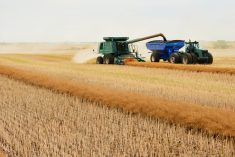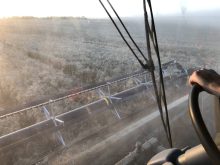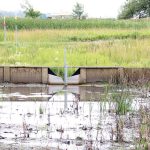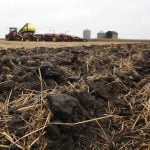Winnipeg | Reuters — Rain has bogged down Western Canada’s harvest of canola, spring wheat and other crops, while cool temperatures slowed the growth of crops that need to mature before the first significant frost.
Most of southern Manitoba, Saskatchewan and Alberta have received rain recently, with Manitoba’s Red River valley among the hardest hit areas. Rain on Friday and Sunday totaled 100 millimetres at Steinbach, Man., although parts of the valley received less, said Bruce Burnett, weather and crop specialist at grain marketer CWB.
“You never like to be in this situation where you have intermittent rains, because that really delays harvest and causes quality degradation,” Burnett said. “If the rains were to stop right now, no, it wouldn’t be (a big deal), but it looks like the first 10 days of September are going to be pretty showery.”
Read Also
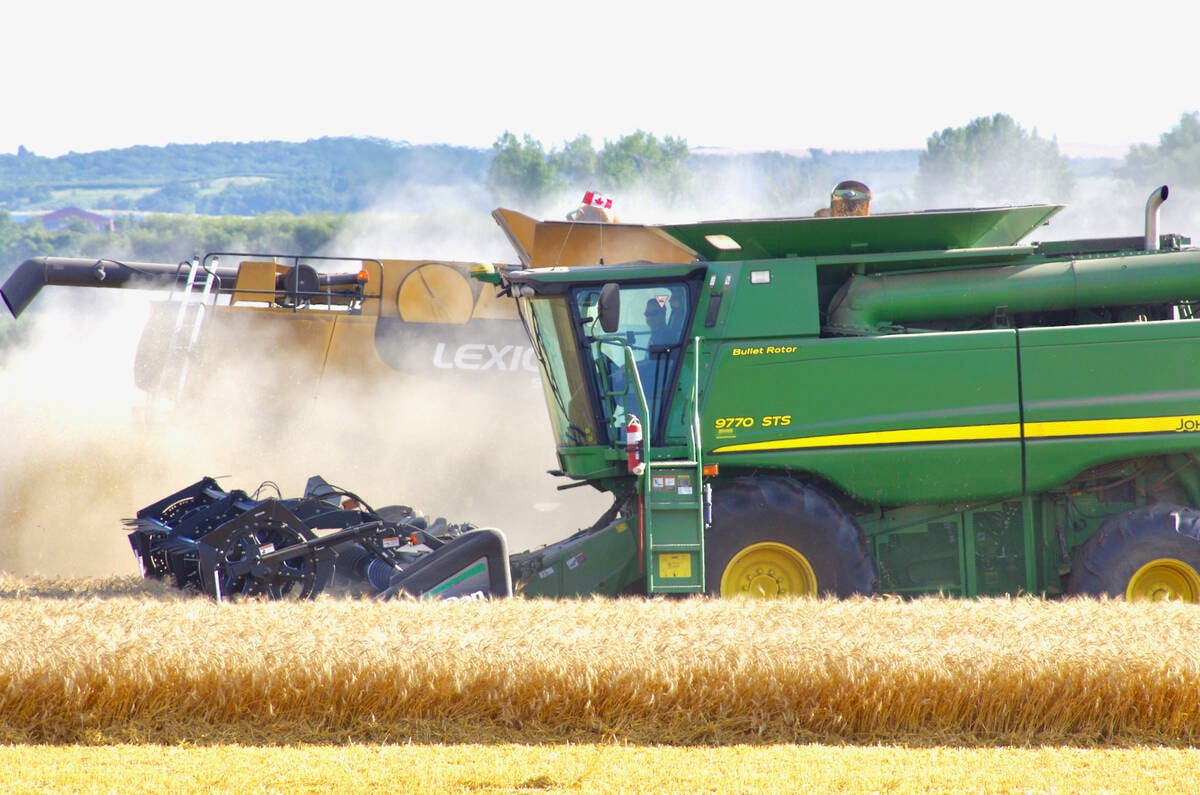
Prairie Wheat Weekly: Most Western Canadian bids higher
Western Canadian wheat prices were higher on Oct. 16, 2025 compared to the past week.
Burnett estimates 10-15 per cent of Western Canada’s total crop has been harvested, compared to the norm of 20-25 per cent at this time of year.
Canada is the world’s No. 6 wheat producer and biggest canola grower.
Environment Canada is forecasting more rain for parts of Saskatchewan, Manitoba and Alberta on Wednesday. Overnight low temperatures are expected to remain well above freezing in most areas this week, but Burnett added that cooler temperatures next week may approach the freezing mark.
The first frost cold enough to halt plant growth typically occurs in mid-September.
In Saskatchewan, Canada’s biggest provincial producer of canola and wheat, heavy rain more than a week ago flattened crops and left fields too muddy for farmers to harvest, according to Shannon Friesen, regional crop specialist with the provincial ag ministry in Moose Jaw.
The longest harvest delays are along Saskatchewan’s border with the U.S., especially in southeastern areas, she said.
Pulse crops, spring wheat and durum have suffered the most quality damage in Saskatchewan.
The Alberta government said Friday that cooler temperatures had slowed crop development, while rain had delayed the harvest in southern and east-central Alberta.
— Rod Nickel is a Reuters correspondent based in Winnipeg.

